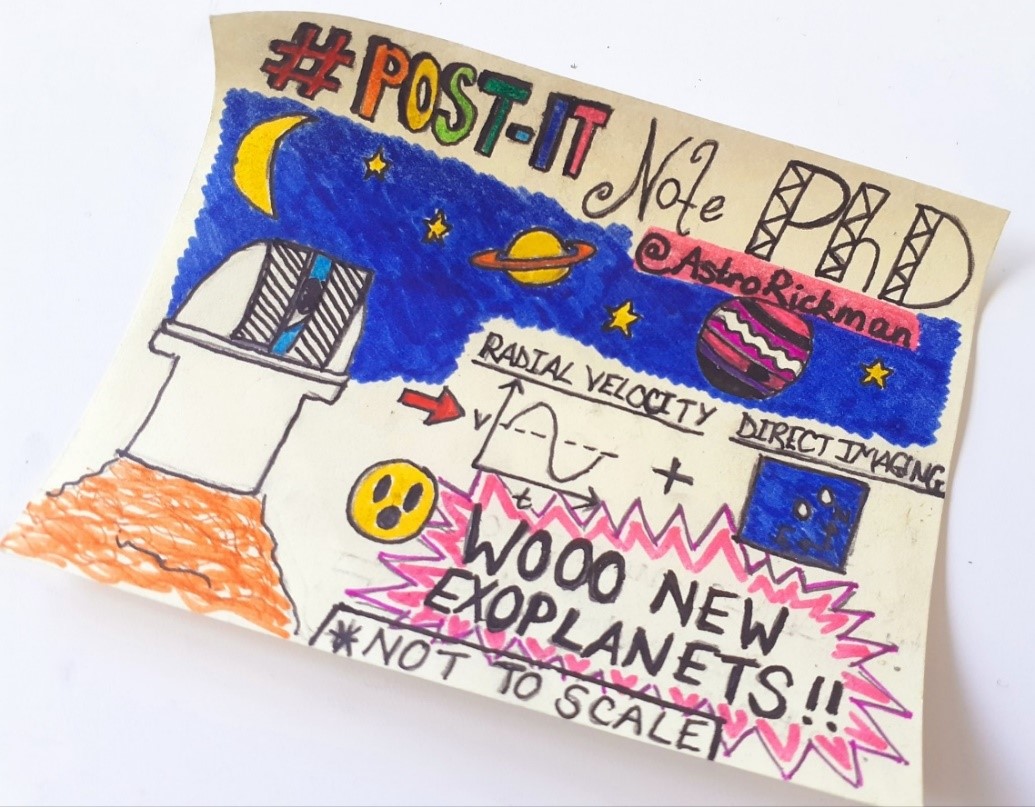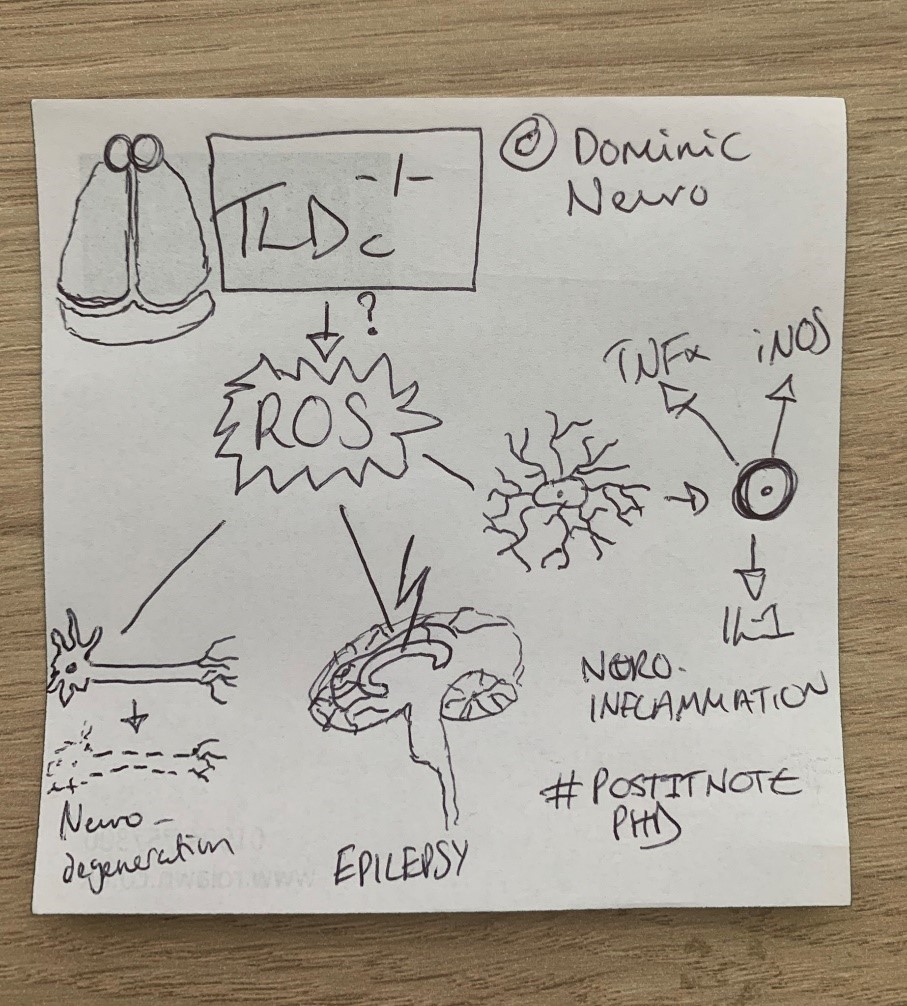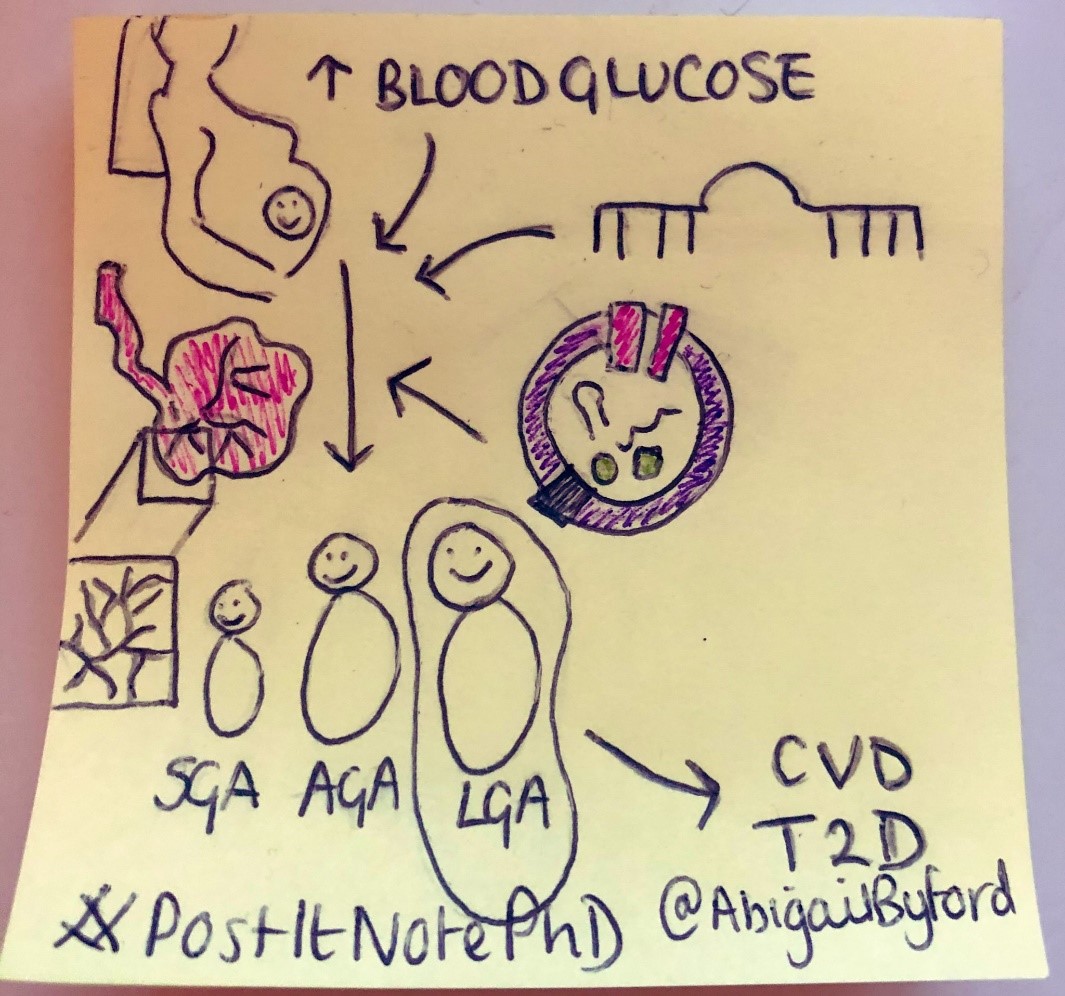Post-it Note PhD

Complete the form below to unlock access to ALL audio articles.
Across the globe, a large proportion of research institutions are currently closed due to the COVID-19 outbreak, sadly bringing an unexpected halt to many scientists' research experiments. What it has not halted, however, is their resourcefulness and creativity.
The #PostItNotePhD challenge asked scientists to summarize their PhD on a single post-it note. Here are a selection of Technology Networks' favorites.
Alex Holmes
(@aoholmes)

"I study proteins (tools cells use to do their jobs). The ones I’m most interested live in the membrane. I study what they look like using x-rays, how they move using simulations and design inhibitors!"
Dr Sam Rowe
(@samfrowe)

"In my PhD project I used bacteria to capture solar energy and make useful chemicals such as hydrogen (H₂)."
Dr Emily Rickman
(@AstroRickman)

"The discovery of new planets via the radial velocity and direct imaging method can help us understand the formation and evolution of planets!"
Dr Ashley Board

"The aim of my PhD was to better understand (and hopefully replicate) the active site of nickel-iron hydrogenase, an enzyme which metabolizes hydrogen oxidation. This involved synthesizing low molecular weight analogues of the enzyme’s active site and crossing my fingers. [Spoiler alert: success was limited]."
Dr Caroline
(@CaroMDPhD)

"My PhD project: studying the genetics basis in auto immune hepatitis and aiming to assess the molecular and functional impact of the variants in the mechanisms of auto immunity underlying auto immune hepatitis."Jonny Pierce
(@JonnyPierce1)
"The center of about one in 10 galaxies shines really brightly across the whole electromagnetic spectrum. For my PhD, I am using deep images of these galaxies to see if galaxy collisions are responsible for setting certain types of these 'Active Galactic Nuclei' off!"
Dominic Simpson
(@DominicNeuro)

"TLDc - family of proteins expressed in the brain that protect against toxic by-products of neuronal activity - reactive oxygen species (ROS). TLDc’s are mutated in human disease - I use mouse models of these diseases to help uncover the mechanism of TLDc in disease."
Abigail Byford
(@AbigailByford)
"I research how miRNAs and extracellular vesicles influence fetal growth and placental growth/vascular development in pregnant women with diabetes as these women can have bigger babies which can lead to future cardiometabolic complications for the offspring."
Dr Karen Steward

"My PhD looked at bacterial pili, hair-like structures that enable bacteria to interact with their environment and each other, from genetics through to physical structures."




